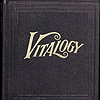Lead techniques help thread
 MissYouAllDay
Posts: 939
MissYouAllDay
Posts: 939
Hey,
Liike many intermediate guitarists on this board I am exploring playing lead guitar. I was wondering if some experienced players could share some basic techniques with me and others. I can play the pentatonic scale pretty fast up and down picking every note. But I would like to be able to make it sound cool. Like I hear about things like "double taps" which I just have no clue what they are and would like to know about.
Thanks,
Liike many intermediate guitarists on this board I am exploring playing lead guitar. I was wondering if some experienced players could share some basic techniques with me and others. I can play the pentatonic scale pretty fast up and down picking every note. But I would like to be able to make it sound cool. Like I hear about things like "double taps" which I just have no clue what they are and would like to know about.
Thanks,
I miss you already, I miss you always
I miss you already, I miss you all day
I miss you already, I miss you all day
Post edited by Unknown User on
0
Comments
I find that adding pick/pinch harmonics adds a lot to the overall tone of soloing, especially in the hardrock/metal style. They're a little tricky at first, but all you have to do is choke up on the pick so that the edge that you use to pick the string is against the thumb, and not going any lower. Then just really pick downward, and dig into the string. The string should hit the pick, then get damped by the thumb giving you the cool harmoic sound.
Other than that try adding onto the pentatonic scales and getting into the natural scales, and harmonic minor scales. Chromatics will also really help out your speed, accuracy, and tone.
-Between the Buried and Me
STOP PLAYING PENTATONICALLY!!!
Pentatonics are great, and they are good to master early, but you learn you can actually play faster, better, more complete solos if you use modes and scales. Not saying there isnt a place for pentatonics, but you should now master modes and scales
www.myspace.com/volinic
www.myspace.com/zane26 (band)
I'm looking for a book that is maybe 1 parts theory, and 2 or 3 parts practical guide to music composition.
I find the music\chord theory books to be not only dogmatic and boring, but also unapplied and impractical.
Does that make me stupid, am i missing the boat, or should it not be as hard as i make it seem?
someone riddle me that.
-nick-
If I opened it now would you not understand?
My question exactly
Try Mickey Bakers Complete Course in Jazz Guitar books 1 & 2. They are great books. They start with a page of chords from hell that you learn then the rest of the book applies them to theories and practical knowledge. They're only about 8 bucks each and you'll learn a hell of a lot.
As far as soloing is concerned. It's not just about the notes, but how you get to them. If you listen to any soulful guitarist, there's a few things that stand out to create emotion,, and that's what you're after.
I think you have to mix up learning the scales, which everybody hates to do. You only have 12 notes to work with in the world of music,, usually 7 in a scale, and 5 outside the scale. They're all usable notes in any solo. You just have to know where to put them.
How you get to those notes is important, too. If you listen to any great emotional soloist,, they're playing very few clean notes like "doink doink doink in time with the music. Bending to the note and away from the note is part of your voice, the vibrato is really important and usually is what distinguishes a guitarist that you recognize as well as hammer ons,and pull offs, and sliding up to a note. These are all like accents to your voice and are what help to add interest.
Playing those "out of scale" notes to get to the note you want gives some pizzazz and drama to a solo too.
Definitely learn to bend,,, because even if you have no idea what you're doing,, 50% + of the notes you play are gonna be right, and if it's wrong, just bend up to the right one. Just make sure you do it again so everyone thinks you know what you're doing!
Timing is really important, too. Playing behind the beat can sound a bit laid back, like in reggae or slower ballads, or create tension and drama, like a Jimmy Page solo where there's that slight delay,,, he's always a bit ahead or behind the beat, as are a lot of soloists,,,,, it's very intentional, but becomes natural to you after a while, like a speaking voice,, but when you play like this, you have to complete the story and "resolve" the tension by coming back into the beat and a satisfying end to the solo.
If you're not playing along with music, ALWAYS practice with a metronome!
The tone is another important thing. Notes need to sound good. Learn to play clean notes first and the interaction between the different places you play on the string, the different sounds from the different locations on the fret board, etc.. Clean picking and fingering, then work on all the bends and slides and other techniques. You can always hide behind all the fuzz and overdrive, but I think if it doesn't sound good clean, it won't be any better all fuzzed up.
Don't be mankind. ~Captain Beefheart
__________________________________